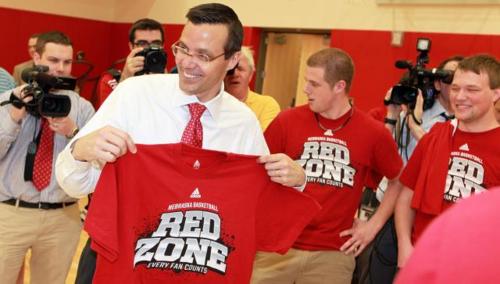#notjustforplayers – College Coaches Are Starting to Figure Out Benefits of Twitter
Posted by BHayes on August 20th, 2013Bennet Hayes is an RTC columnist. He can be reached @HoopsTraveler.
Twitter may be just seven years old, but the social media tool has already found ubiquity in the world of college athletics. Rare is the college athlete (particularly in the revenue sports of football and basketball) without a Twitter handle, and rarer still is the day that passes without a major college basketball or football headline breaking from the Twitter-verse. College hoops recruits and transfers often use their 140-character snippets to announce their first, or next, college destination, while current players are keen to keeping their followers aware of breaking news from their program, summer plans, and even personal injury statuses. Quite simply, Twitter fuels the college basketball rumor mill. But for as much relevance as the platform has found within the game, one group that has failed to universally embrace it has been the head coaches. Coaches have no accepted industry standard to follow on how much to tweet, what to tweet about, or even whether to tweet in the first place. Their wide variety of approaches to the tool prompted The Sporting News to take a deeper look at how the head men in the Power Seven (AAC included) conferences use Twitter. Their findings make for a fun read – and should prompt a follow or two, but also provide an entrée into an emerging topic – how exactly are coaches using Twitter as a tool for growing their program?
Back in 2009, Twitter was considered so toxic that Mike Leach banned his entire football team (Texas Tech at the time) from using it. Four years later, that very same Mike Leach has over 40,000 followers and uses his feed to inform Washington State fans of happenings both relevant (“practice went great in Lewiston”) and irrelevant (“one of my favorite TV shows was Magic City on Starz. Wish they hadn’t cancelled it.”). Leach’s college hoops coaching brethren have made a similar discovery. Leading the way in the Twitter world, as he does in many other categories, is Kentucky’s John Calipari. Coach Cal’s 1.2 million followers are more than nine times as many as the second most-followed college coach (Indiana’s Tom Crean), and he uses his Twitter notoriety in exactly the way a solid front-runner should. Befitting his on and off-court personality, Calipari tweets often and honestly, mostly making sure that UK fans are privy to all the happenings around his program. When you are speaking to a fan base as populous and interested as his Wildcat supporters, there is no need to reinvent the wheel. Goal number one should be making program information easy and accessible, and Coach Cal does that as well as any college coach in the Twitter business.










































